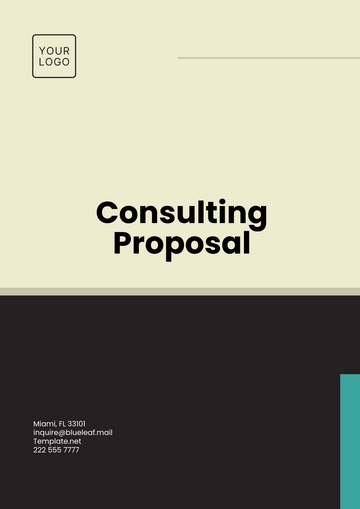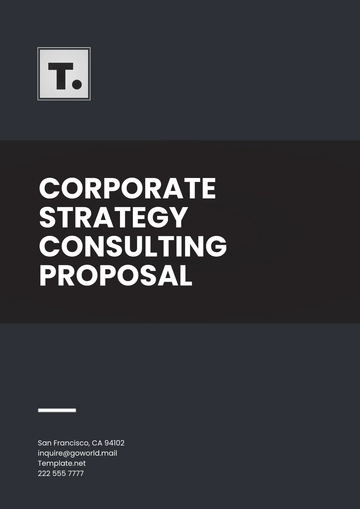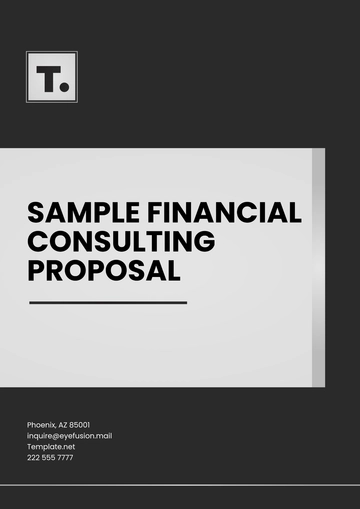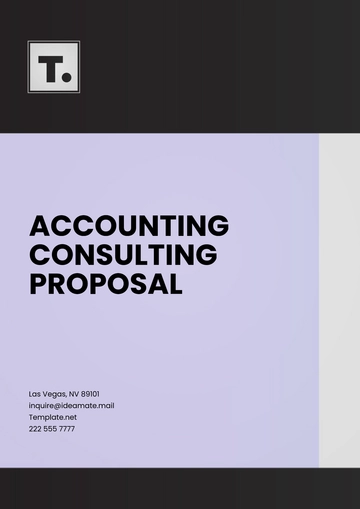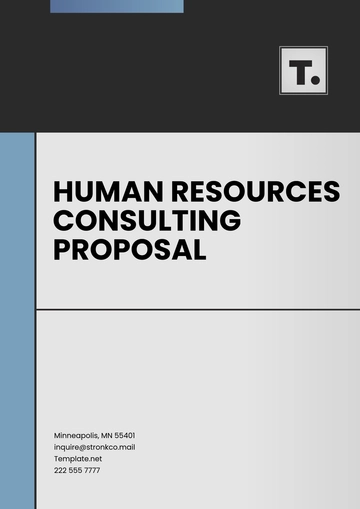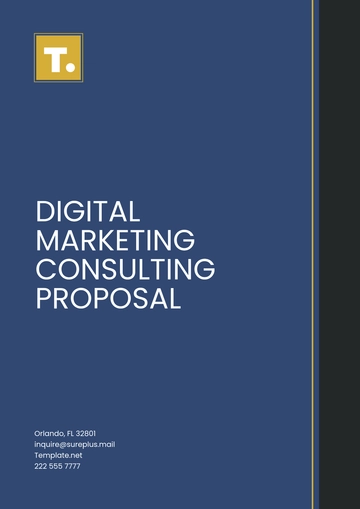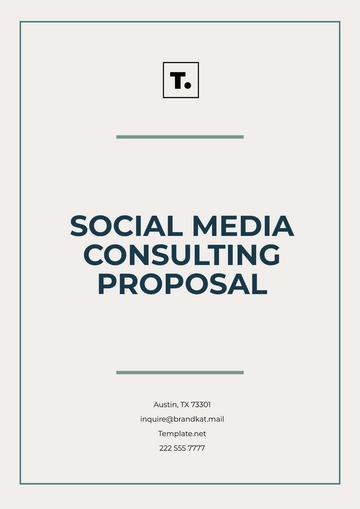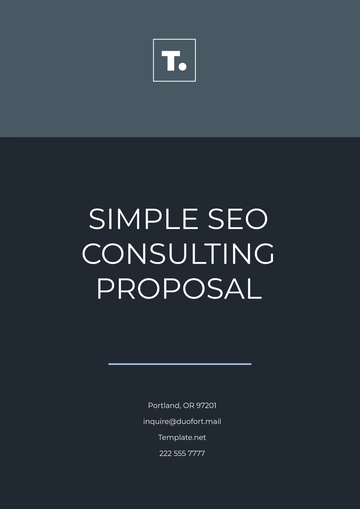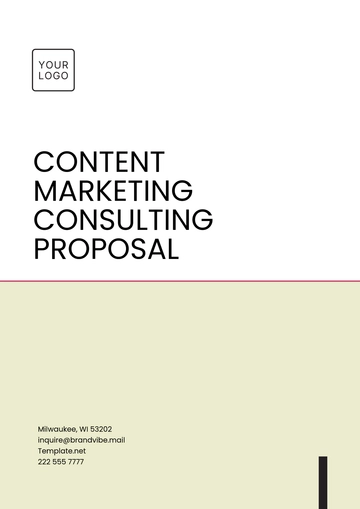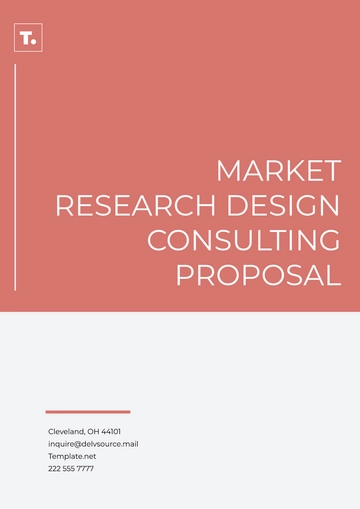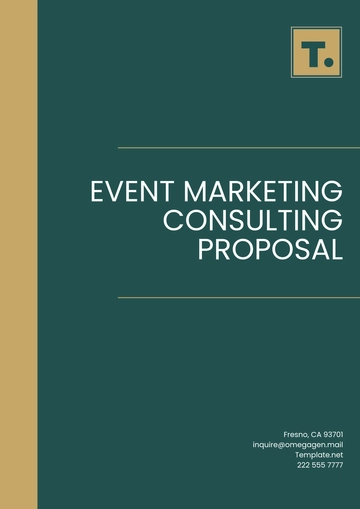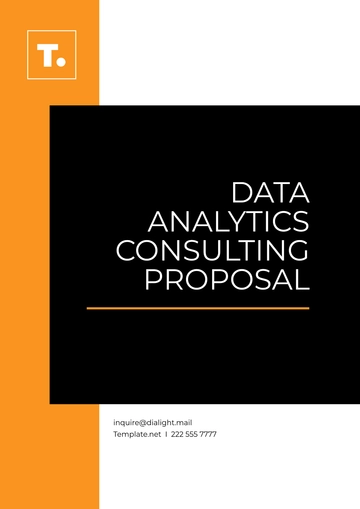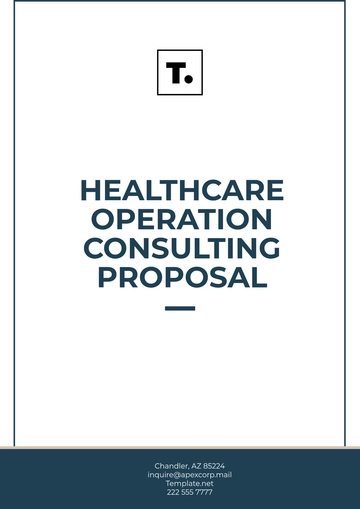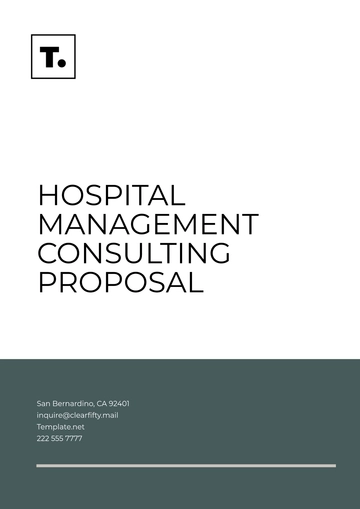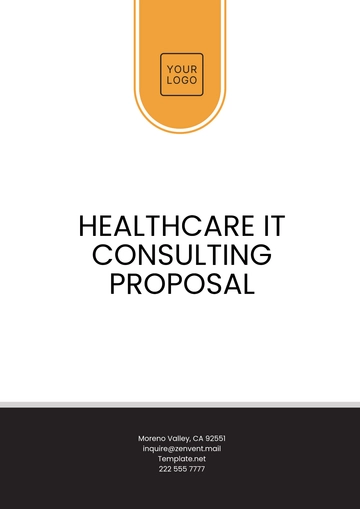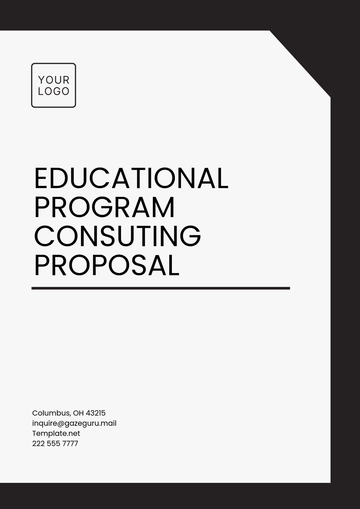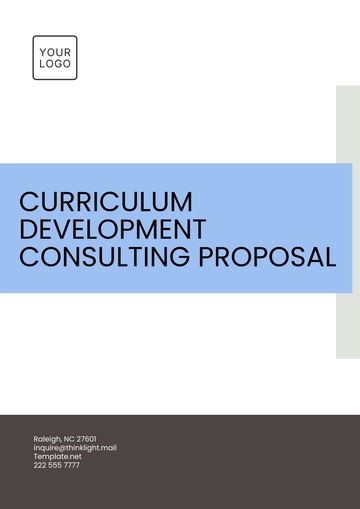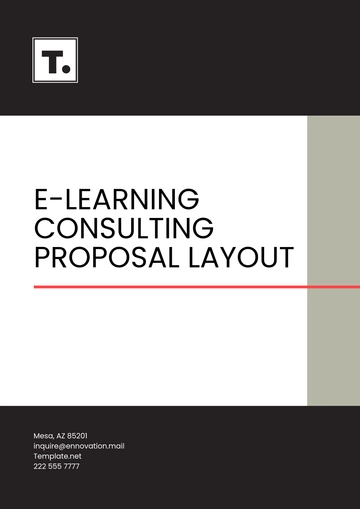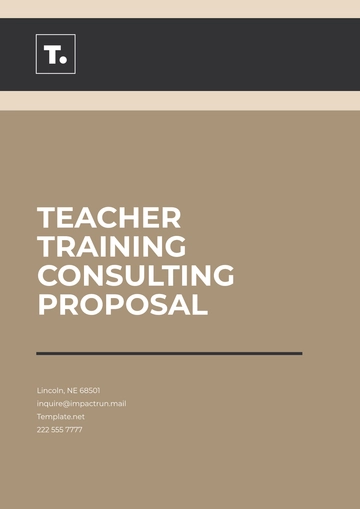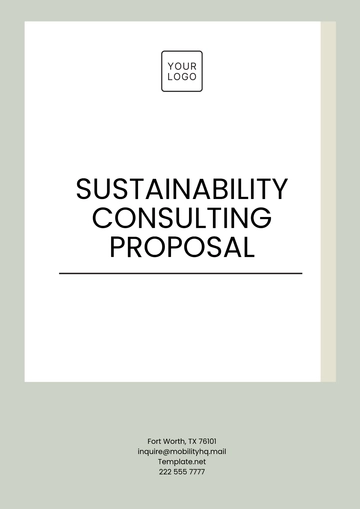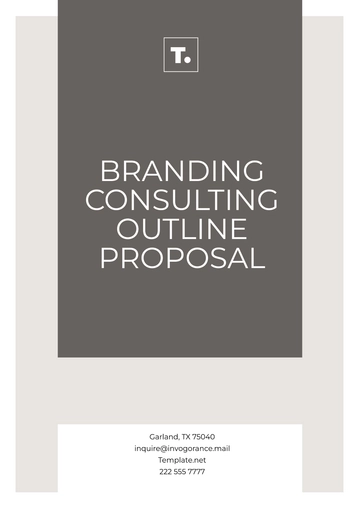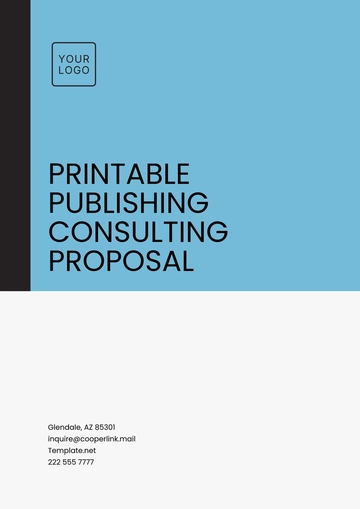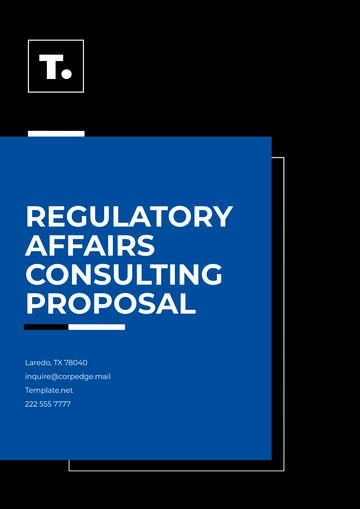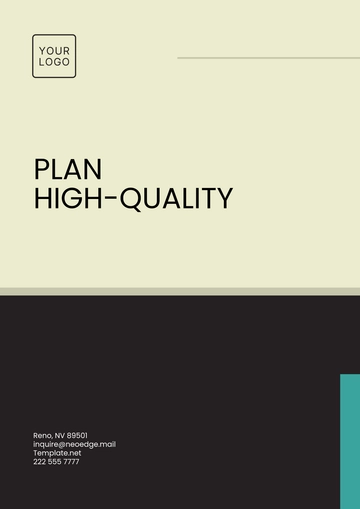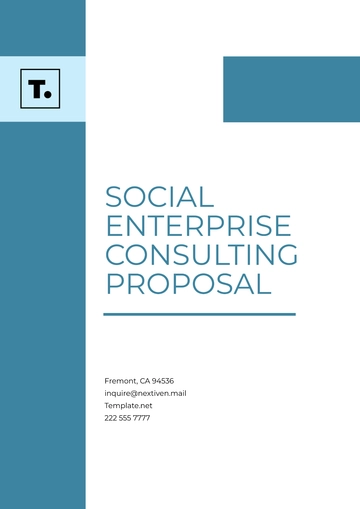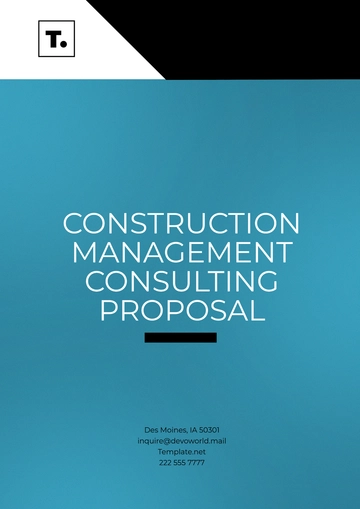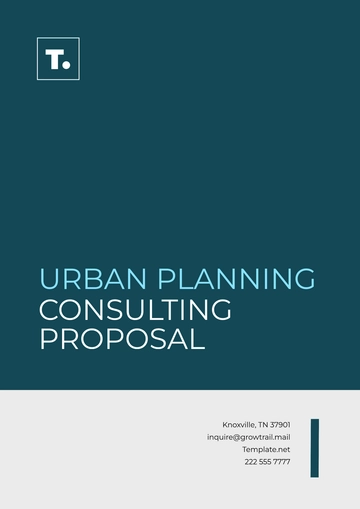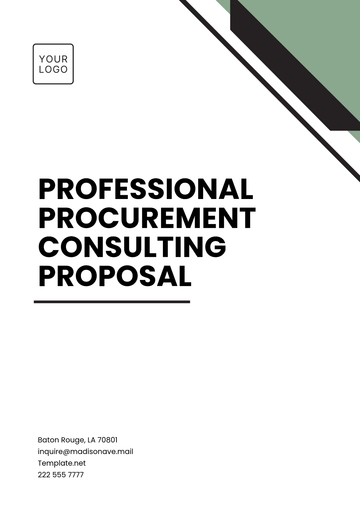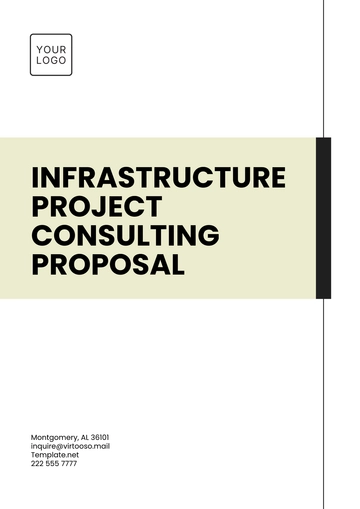Free Consulting Firm Proposal
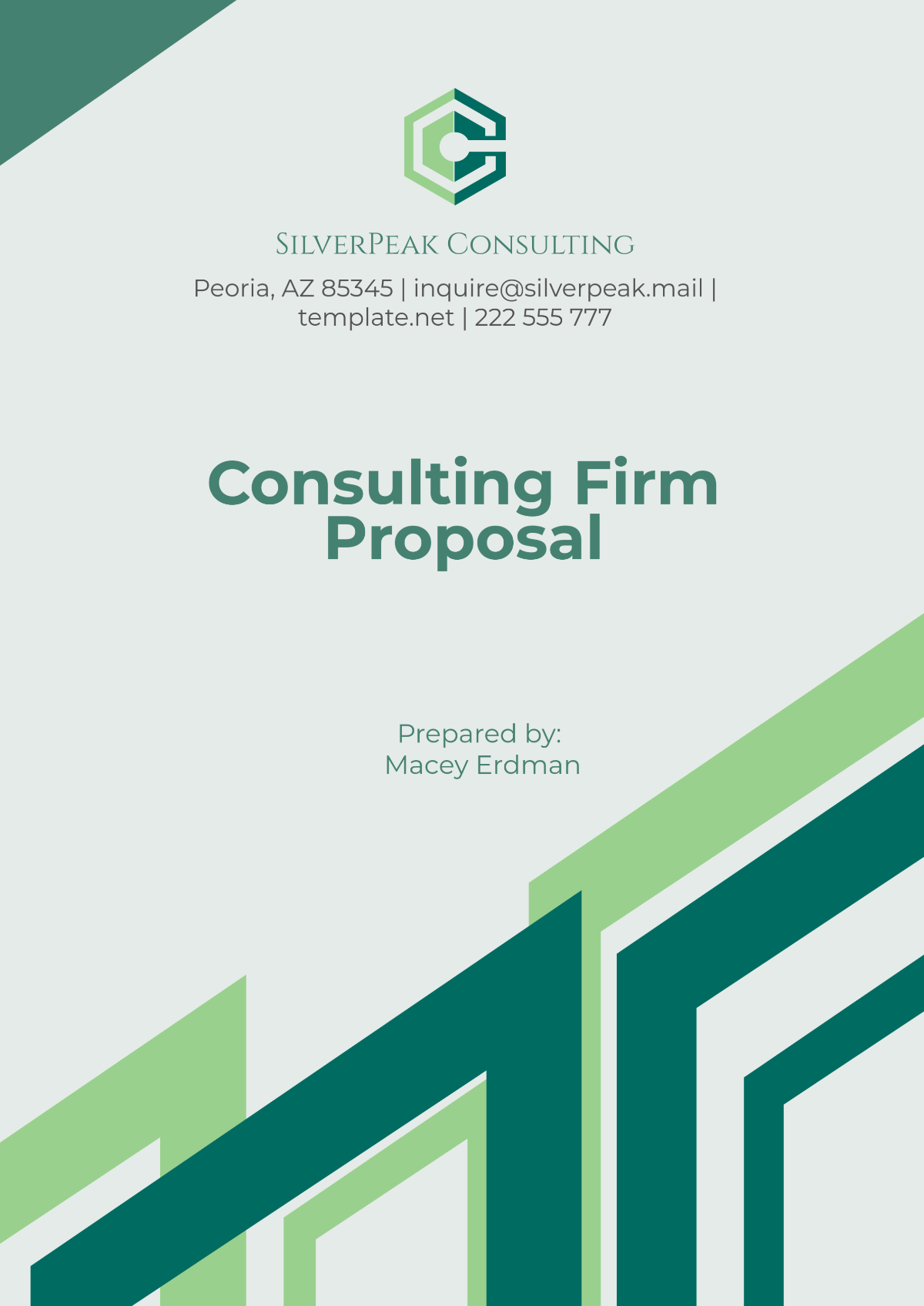
Date: October 1, 2050
Prepared For: [Your Client Name]
Prepared By: [Your Name], [Your Company Name]
1. Executive Summary
1.1 Purpose of Proposal
This proposal serves to initiate a formal consulting partnership between [Your Company Name] and [Your Client Name] with the goal of addressing strategic, operational, and technological challenges that have emerged in your business landscape. As your organization seeks to maintain its competitive edge and capitalize on emerging opportunities, our expertise in strategic consulting, process optimization, and digital transformation is well-suited to guide you through this process. With over [25] years of experience in providing innovative solutions for a wide range of industries, we are confident that our approach will bring measurable improvements and facilitate sustainable growth for [Your Client Name].
Our consulting services are designed to support [Your Client Name] in navigating complex organizational shifts and in maximizing its market potential. This proposal outlines the scope of services, project phases, timeline, and financial overview for your review. We aim to help your organization thrive in an increasingly competitive and technology-driven environment.
1.2 Objectives
The primary objectives of this proposal are to:
Clearly define the scope of consulting services and methodologies that will be employed to address the current challenges faced by [Your Client Name].
Collaboratively develop a strategic roadmap to enhance organizational performance, streamline operations, and facilitate digital transformation, ultimately driving higher profitability and market share.
Establish a clear timeline and budget, providing transparency in our approach and ensuring that performance outcomes can be tracked and evaluated against predefined goals.
These objectives will be the foundation of our consulting engagement, and we are committed to delivering outcomes that align with your business’s vision and mission.
1.3 Overview of [Your Company Name]
[Your Company Name] is an industry-leading consulting firm, recognized for its expertise in organizational transformation, digital strategy, and process optimization. Our mission is to help organizations like yours become more agile, innovative, and efficient by providing actionable insights and customized solutions. With a team of over [500] consultants located across the globe, we specialize in a variety of domains, including strategic planning, operational optimization, change management, and technology integration.
1.3.1 Our Core Expertise:
Strategic Consulting: We offer a comprehensive suite of services to help you develop business strategies that are aligned with your long-term goals.
Operational Efficiency: We provide hands-on assistance in streamlining processes to reduce costs, improve productivity, and enhance the overall performance of your business operations.
Technology Integration: We assist clients in implementing cutting-edge technologies, including AI, automation tools, and data analytics, to drive innovation and digital transformation.
Change Management: We understand the complexities of organizational change and help businesses manage transitions with minimal disruption.
Category | Details |
|---|---|
Founded | 2020 |
Headquarters | [Your Company Address] |
Core Services | Strategic Consulting, Digital Transformation, Process Optimization |
Global Presence | 30+ countries |
Consultants Worldwide | 500+ |
Industry Expertise | Healthcare, Finance, Manufacturing, Retail |
2. Scope of Services
2.1 Service Areas
Our consulting services for [Your Client Name] will cover the following critical business areas to support your company in achieving its strategic objectives:
2.1.1 Strategic Planning
The strategic planning phase will involve a thorough assessment of [Your Client Name]'s current strategic direction, market position, and business objectives. Our team will work closely with your leadership to identify market trends, assess competitive forces, and develop a strategic framework that enhances your long-term vision. This will include creating detailed, actionable plans for your core business areas such as product development, market expansion, and customer engagement.
We will also analyze both external factors such as industry trends, regulatory requirements, and competitor strategies, as well as internal factors, including existing capabilities, resources, and challenges. This dual analysis will allow us to identify opportunities for growth and areas that require optimization.
By the end of this phase, your company will have a comprehensive strategic roadmap with clear initiatives and priorities to help achieve both short-term and long-term objectives.
2.1.2 Operational Optimization
Operational optimization is a key focus of our consulting services. Our approach begins with a deep dive into your current operational processes to assess their efficiency and effectiveness. We will conduct process mapping, identify bottlenecks, and evaluate resource utilization. From this data, we will propose solutions to streamline workflows, reduce redundancies, and enhance overall productivity.
This service will also focus on improving cost-effectiveness by identifying areas where technology can replace manual processes, thereby reducing overhead costs. We will suggest lean methodologies and other best practices to ensure that your operations run smoothly while maintaining quality standards.
By optimizing your operations, we expect to see significant improvements in performance, cost savings, and employee satisfaction, as the new systems will be simpler and more intuitive.
2.1.3 Digital Transformation
In today’s rapidly evolving business environment, digital transformation is essential to maintaining competitiveness. Our digital transformation services will help [Your Client Name] integrate advanced technologies into its operations. We will evaluate your current technology infrastructure, identify gaps, and propose solutions such as implementing cloud-based systems, automating routine tasks, and utilizing big data analytics to derive insights that inform decision-making.
A key element of this phase will be the adoption of artificial intelligence (AI) and machine learning (ML) technologies to automate repetitive processes and improve forecasting accuracy. Additionally, we will integrate data-driven strategies to provide your business with actionable insights that will lead to smarter, faster decision-making.
Digital transformation can help your company not only improve efficiency but also provide a more personalized experience to your customers, offering them innovative services and solutions.
2.1.4 Change Management
One of the most critical factors in the success of any organizational change initiative is effective change management. As you implement new strategies and technologies, it is essential that employees at all levels are on board and equipped to navigate the changes.
Our change management services include:
Stakeholder Communication: Crafting communication strategies that ensure transparency, provide clear messages about the changes, and engage all levels of staff.
Training Programs: Designing and conducting training sessions to equip employees with the skills necessary to adapt to new processes and technologies.
Feedback Mechanisms: Establishing systems to capture feedback from employees and leaders to monitor the transition’s effectiveness and make any necessary adjustments.
Sustained Support: Providing ongoing support post-implementation to address any issues and ensure that changes are fully integrated into the company’s culture.
Through careful planning, clear communication, and continuous support, we will help ensure the successful adoption of the new systems and processes.
2.2 Project Phases
Our consulting engagement will follow a structured approach, broken down into five phases to ensure that each aspect of the project is addressed with the necessary focus and expertise:
Phase | Objective | Timeline |
|---|---|---|
Phase 1: Discovery | Assess current state, understand the challenges, and identify key improvement areas | 2 weeks |
Total project duration is approximately [17] weeks, allowing for comprehensive analysis, thoughtful solution design, and effective implementation.
3. Methodology
3.1 Data Collection and Analysis
Our methodology begins with comprehensive data collection. This includes gathering both quantitative and qualitative data to fully understand the current state of operations at [Your Client Name]. Methods used for data collection will include:
Interviews and Surveys: Engaging with key stakeholders across departments to gather insights into their challenges, needs, and expectations.
Data Analytics: Analyzing historical performance data and financial reports to understand trends and identify areas for improvement.
Competitive Benchmarking: Reviewing industry best practices and comparing [Your Client Name]’s performance against competitors to understand gaps in efficiency or performance.
3.2 Process Mapping
After collecting the necessary data, we will proceed with process mapping to visualize your company’s workflows. This step involves creating a detailed map of each key process, highlighting areas of inefficiency and bottlenecks that impact overall performance. By understanding the current state of each process, we can design more effective workflows that improve both speed and quality.
Process Mapping Benefits:
Improved clarity around operational processes
Identification of inefficiencies and redundancy
A foundation for process optimization initiatives
3.3 Solution Development
Based on the data analysis and process mapping, we will design tailored solutions to address your organization's unique needs. This will include:
Technology Solutions: Proposing software and tools that improve operational efficiency, such as automation tools and data analytics platforms.
Process Improvements: Identifying steps to streamline workflows, eliminate redundancies, and introduce more agile practices.
Cost-Reduction Strategies: Recommending actions to optimize resource utilization and reduce unnecessary expenditures.
4. Timeline & Project Plan
The overall timeline for this project is broken down into clear phases, each with specific objectives and deliverables. Below is a summary of the project phases and expected durations:
4.1 Project Phases Breakdown
Each phase is designed to ensure that [Your Client Name] receives the most effective and actionable consulting services, while also maintaining transparency in progress and deliverables.
Phase | Timeline | Objective | Deliverables |
|---|---|---|---|
Phase 1: Discovery | 2 weeks | Assess the current state of operations, gather insights from key stakeholders, and understand your business's core needs. | Stakeholder interviews and surveys, current state analysis, high-level findings report. |
4.2 Detailed Project Timeline
This project will span a total of [17] weeks. During this period, we will maintain consistent communication and provide progress updates through formal project reports and meetings.
Phase | Start Date | End Date | Major Milestones |
|---|---|---|---|
Phase 1: Discovery | November 1, 2050 | November 14, 2050 | Initial stakeholder interviews, current state assessment report |
During these phases, our team will work closely with [Your Client Name] to ensure that we stay on track, address any challenges, and adjust timelines as necessary. Each phase will be concluded with a formal review and handover of relevant deliverables.
5. Budget Overview
The estimated cost for this consulting engagement is as follows:
5.1 Detailed Cost Breakdown
The following table outlines the financial breakdown of the consulting services offered:
Expense Category | Cost ($) | Details |
|---|---|---|
Project Management | 50,000 | Coordination, oversight, and administration across all phases. |
5.2 Payment Schedule
The payment schedule will be broken down in alignment with project milestones to ensure that payments are tied to deliverables:
Milestone | Payment Amount ($) | Due Date |
|---|---|---|
Initial Payment | 50,000 | Upon project start (November 1, 2050) |
6. Methodology
6.1 Data Collection and Analysis
Our methodology begins with comprehensive data collection. This includes gathering both quantitative and qualitative data to fully understand the current state of operations at [Your Client Name]. Methods used for data collection will include:
Interviews and Surveys: Engaging with key stakeholders across departments to gather insights into their challenges, needs, and expectations.
Data Analytics: Analyzing historical performance data and financial reports to understand trends and identify areas for improvement.
Competitive Benchmarking: Reviewing industry best practices and comparing [Your Client Name]’s performance against competitors to understand gaps in efficiency or performance.
We will use various tools and platforms to collect and analyze data efficiently, ensuring that the insights derived from this data are accurate, relevant, and actionable.
6.2 Process Mapping
After collecting the necessary data, we will proceed with process mapping to visualize your company’s workflows. This step involves creating a detailed map of each key process, highlighting areas of inefficiency and bottlenecks that impact overall performance. By understanding the current state of each process, we can design more effective workflows that improve both speed and quality.
Process Mapping Benefits:
Improved clarity around operational processes
Identification of inefficiencies and redundancy
A foundation for process optimization initiatives
6.3 Solution Development
Based on the data analysis and process mapping, we will design tailored solutions to address your organization's unique needs. This will include:
Technology Solutions: Proposing software and tools that improve operational efficiency, such as automation tools and data analytics platforms.
Process Improvements: Identifying steps to streamline workflows, eliminate redundancies, and introduce more agile practices.
Cost-Reduction Strategies: Recommending actions to optimize resource utilization and reduce unnecessary expenditures.
Our team will work closely with [Your Client Name] to ensure that each solution is both practical and aligned with the company's strategic goals.
7. Risk Management
7.1 Risk Identification
Throughout the project, we will work with your team to identify any potential risks that could affect the successful delivery of the consulting services. Common risks include:
Resistance to Change: Employees may resist new systems or processes, delaying project implementation.
Technological Challenges: Integration of new technologies may face compatibility issues with existing systems.
Time Delays: Delays in providing necessary data or approvals from [Your Client Name] could impact the project timeline.
7.2 Risk Mitigation Strategies
We will implement the following strategies to mitigate these risks:
Stakeholder Engagement: Ensuring that all stakeholders are aligned with the project vision, through regular meetings and clear communication.
Change Management: Providing comprehensive training and continuous support to employees to ensure smooth transitions.
Flexible Timelines: Incorporating buffer time in the project schedule to account for any unforeseen delays or obstacles.
7.3 Contingency Plan
In the event that a major risk materializes, we will implement a contingency plan. This will include:
Adjusting timelines as needed to accommodate delays.
Reworking specific solutions if new obstacles arise in the implementation phase.
Revisiting stakeholder engagement efforts to ensure buy-in if resistance to change is encountered.
8. Conclusion
This proposal outlines a comprehensive approach to consulting services aimed at optimizing [Your Client Name]’s operations, improving overall business performance, and driving digital transformation. Through structured phases, detailed data analysis, and tailored solutions, we are confident that [Your Client Name] will achieve its strategic goals and address its key challenges.
The outcome of this engagement will not only position your company to navigate the complexities of today’s business environment but will also equip you with the tools and strategies necessary to thrive in the years to come.
We look forward to your approval of this proposal and the opportunity to partner with you on this transformative journey.
9. Next Steps
To proceed with the project, please review the terms outlined in this proposal. Upon your approval, we will begin the discovery phase and move forward with the project as planned. Our team is ready to schedule an initial meeting to discuss the specifics and initiate the next steps.
For any inquiries or clarifications, please feel free to contact [Your Name] at [Your Email] or [Your Company Number].
- 100% Customizable, free editor
- Access 1 Million+ Templates, photo’s & graphics
- Download or share as a template
- Click and replace photos, graphics, text, backgrounds
- Resize, crop, AI write & more
- Access advanced editor
Present your consulting services effectively with the Consulting Firm Proposal Template from Template.net. This editable and customizable template is designed to help you pitch your consulting firm’s expertise, pricing, and project timelines to clients. Use our Ai Editor Tool to personalize it for each new business opportunity.
You may also like
- Business Proposal
- Research Proposal
- Proposal Request
- Project Proposal
- Grant Proposal
- Photography Proposal
- Job Proposal
- Budget Proposal
- Marketing Proposal
- Branding Proposal
- Advertising Proposal
- Sales Proposal
- Startup Proposal
- Event Proposal
- Creative Proposal
- Restaurant Proposal
- Blank Proposal
- One Page Proposal
- Proposal Report
- IT Proposal
- Non Profit Proposal
- Training Proposal
- Construction Proposal
- School Proposal
- Cleaning Proposal
- Contract Proposal
- HR Proposal
- Travel Agency Proposal
- Small Business Proposal
- Investment Proposal
- Bid Proposal
- Retail Business Proposal
- Sponsorship Proposal
- Academic Proposal
- Partnership Proposal
- Work Proposal
- Agency Proposal
- University Proposal
- Accounting Proposal
- Real Estate Proposal
- Hotel Proposal
- Product Proposal
- Advertising Agency Proposal
- Development Proposal
- Loan Proposal
- Website Proposal
- Nursing Home Proposal
- Financial Proposal
- Salon Proposal
- Freelancer Proposal
- Funding Proposal
- Work from Home Proposal
- Company Proposal
- Consulting Proposal
- Educational Proposal
- Construction Bid Proposal
- Interior Design Proposal
- New Product Proposal
- Sports Proposal
- Corporate Proposal
- Food Proposal
- Property Proposal
- Maintenance Proposal
- Purchase Proposal
- Rental Proposal
- Recruitment Proposal
- Social Media Proposal
- Travel Proposal
- Trip Proposal
- Software Proposal
- Conference Proposal
- Graphic Design Proposal
- Law Firm Proposal
- Medical Proposal
- Music Proposal
- Pricing Proposal
- SEO Proposal
- Strategy Proposal
- Technical Proposal
- Coaching Proposal
- Ecommerce Proposal
- Fundraising Proposal
- Landscaping Proposal
- Charity Proposal
- Contractor Proposal
- Exhibition Proposal
- Art Proposal
- Mobile Proposal
- Equipment Proposal
- Student Proposal
- Engineering Proposal
- Business Proposal
